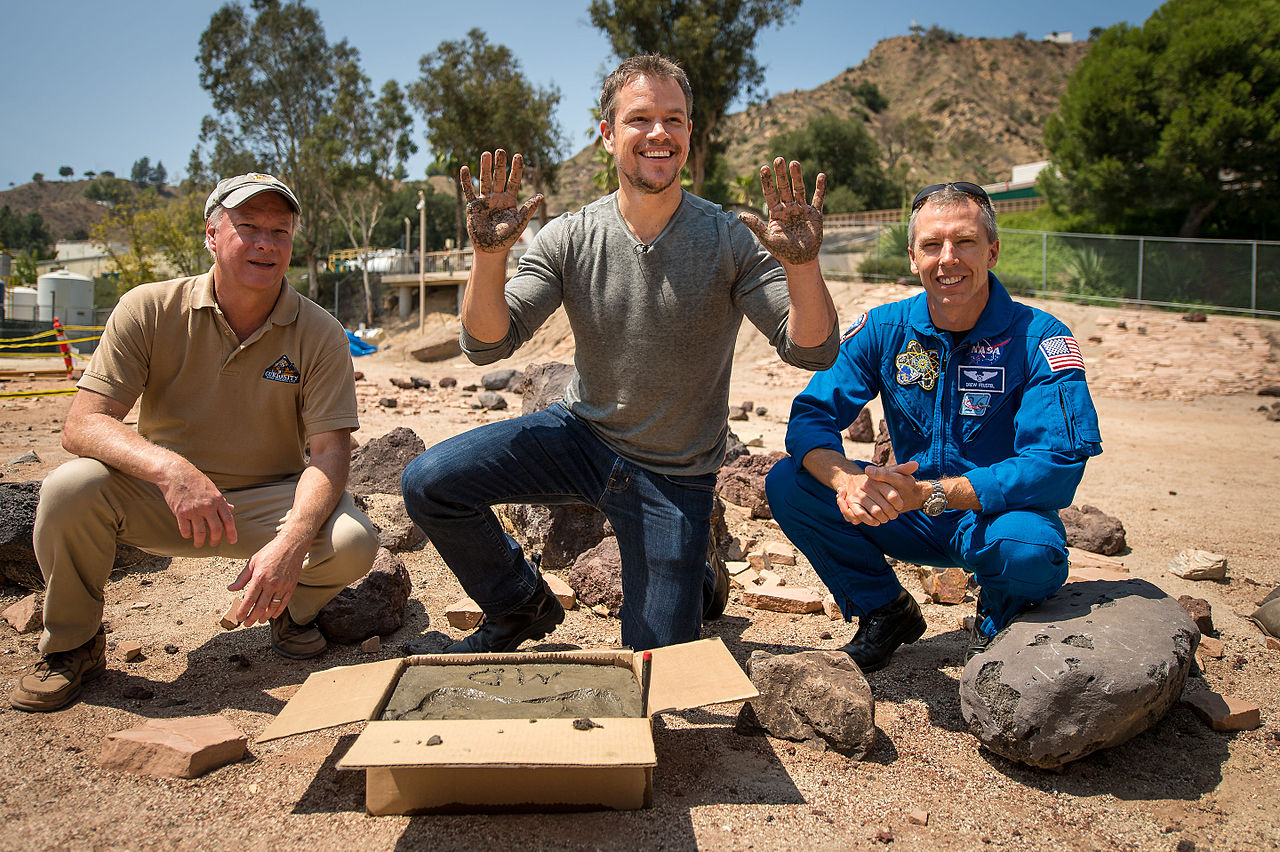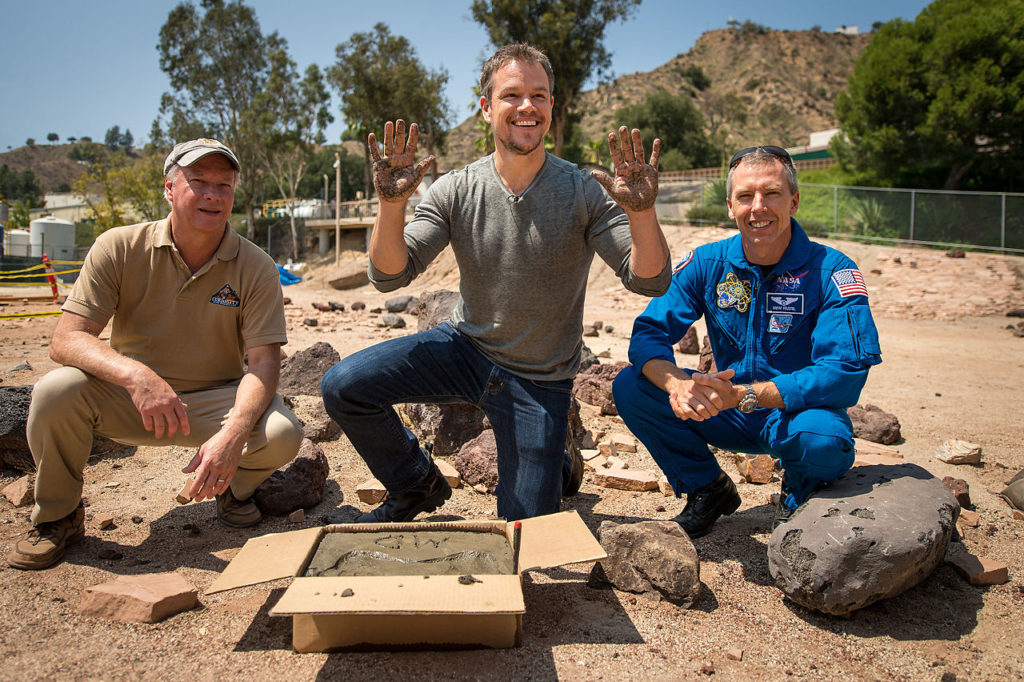There is not much that needs to be said about The Martian because it is phenomenal. Every part of the film was very well executed. There is an abundance of great filmmaking in The Martian, which kept me on the edge of my seat until the very end.
The film is an emotional ride from the very beginning when astronaut Mark Watney, played by Matt Damon, is left for dead on Mars after being struck by a piece of equipment. His crew leaves Mars in fear that their ship will not make it through the storm. From then on, Watney is stuck on a barren planet that seemingly cannot produce life. The film depicts his struggle to survive and attempts of contact with NASA.
Without giving too much away, most of the film is centered on Watney. The supporting cast does not have much screen time, which actually worked in the film’s favor. At first, I felt that the film would get boring quickly without cutting to scenes on Earth or of Watney’s crew who are still in space. However, I was surprised that, by half way, through I actually enjoyed watching more of Watney and his battles to make his own colony on Mars. These solo scenes allowed me to deeply connect with the character which made the last 20 minutes almost emotionally unbearable.
The coolest parts of these scenes were the cinematography and the dialogue. The effects were pretty awesome and I felt that I was on Mars and in space with the characters. It had a similar feeling to last year’s space epic Interstellar. The Martian was very realistic in the same sense that Interstellar was because it looked so real. The peril that the characters were in seemed all the more nervewracking.
The screenwriting was also very clever. I particularly liked the majority of the Watney scenes because it allowed Damon to break the fourth wall. Damon talks to the audience by talking to the cameras on his space suit, rover and living quarters. It added a fun element to the film because Watney was able to freely show his frustration and emotions to the audience. It gives the feeling that he is talking directly to you as opposed to normal dialogue of characters talking to each other. This also added to the emotional connection to the character because you will feel like you know him.
The script as a whole was well-constructed too. Every scene made sense and was very easy to follow, which is the main difference between The Martian and Interstellar. There was a very even balance between the drama, comedic relief, lighter scenes and serious scenes. This made the whole film very smooth. It did not feel jumpy, but rather was very continuous, which was great for answering all the questions you will have while watching. In typical Ridley Scott fashion, almost all of your questions will be answered by the end of the film.
What really struck me as an important aspect of making people realize the impact of this film was the audience’s reaction at the end. I do not like to generalize audience’s thoughts on films, but I think it is safe to say that every person in the sold out theater loved it. When the first set of credits rolled, the entire theater broke out in a thunderous round of applause. I cannot remember the last time that happened while seeing a movie. Everyone stayed in the theater to watch the cast credits when most people normally run out as soon as the film ends. Then, when the normal credits started rolling, the audience applauded again. This film will impact you emotionally, just as it did to every person in the theater I was in.
With NASA announcing last week that there is evidence of water on Mars, I would like to think that a lot of the film is possible. I know NASA will probably never come out and directly say whether the events of The Martian could occur, but maybe they could. This element of reality is why The Martian has a solid chance to win the Best Picture Academy Award this February. This film is a homerun in every sense, so definitely go experience it.




